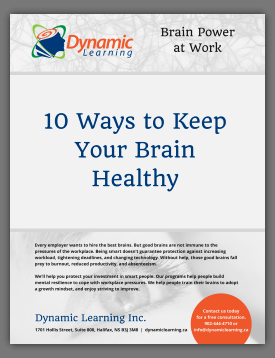How to manage your mental health in this crisis, by Dayna Lee-Baggley, Ph.D. (published with permission)
If you’re feeling anxious or stressed about COVID-19, please know that your reaction is very understandable. There are two parts of our brain very relevant to this issue. The first is our “caveman” brain.
Our caveman brain controls things like emotions, automatic thoughts, learning, and memories. It is always functioning and there’s no way to turn it on or off. It is built for survival and has evolved over time to be hyper-vigilant to risk and threat. This is, of course, highly adaptive when we lived in caves.
Because of the threat of COVID-19, our caveman brains are “on fire”. So if you notice feeling more worried or anxious, this is completely to be expected. If you already have an anxiety disorder, you can expect to see an increase in your symptoms. This is millions of years of evolution in action, trying to protect you.
But our caveman mind doesn’t always give us good advice for our modern world. For example, as of March 19, 2020, there were 690 confirmed cases COVID-19 in Canada. This means there were more than 37 million Canadians who were NOT infected. That doesn’t mean there is no risk. In fact, many cases are unfortunately hidden.
For example, on January 21st, in Hubei province, there were around 100 new cases. In reality, there were 1,500 new cases that day (people not yet sick and not yet diagnosed) and growing exponentially. Keep in mind that our caveman brain tends to overestimate risk to the point it might be unhelpful. It may also suggest doing things that actually aren’t that helpful; stockpiling toilet paper is a good example of this. Often, we need to calm our caveman mind down enough to make good decisions.
The other important part of our brain is our frontal lobe. This is the most recently evolved part of our brain and it controls behaviour. This is what we use to start and stop a behaviour, to plan, and to use willpower or self-control. Whereas our caveman mind works automatically and outside conscious control, we have to “turn on” our frontal lobe.
Our frontal lobe is like a battery and we can “drain” the battery using it to function during our day. That’s why binge eating and emotional eating are more likely to happen in the evenings than in the mornings; because we have “spent” our frontal lobe battery and there’s not much left to control our behaviour.
But because our caveman brain is always functioning, it’s still there to offer us a way to “feel better” with food (at least in the short term). Most of us plug in our cell phones each day but have you done something deliberate to charge your frontal lobe today? Consider finding and making use of recharging activities, which are things that make you feel more energetic when you finish than when you start. Common recharging activities include sleep, eating healthy foods, connecting with loved ones, find ways to laugh and to take a “mental break” from all the media coverage of COVID-19.
And there are effective things you can do regarding COVID-19. We all know about handwashing and staying home if you’re sick. Social distancing is one key way to keep everyone healthy. Using social distancing measures can help reduce the death rate by a factor of 10. We can help reduce the strain on the healthcare system and ensure people get the treatment they need by “flattening the curve”, by following self-isolation and social distancing measures. And remember, you will need your frontal lobe activated and charged in order to follow through on these recommendations.
It’s also critical to be compassionate to ourselves and others in a crisis. Mr. Rogers used to say that when something bad happens, don’t just focus on the bad thing that happened, also notice all the people who rush in to help.
Compassion is about common humanity and recognizing suffering and wanting to alleviate it. You are not alone in this crisis. You are not alone in feeling anxious and worried. This is, in fact, a global crisis, and the whole world is working in addressing this issue. We are better together than apart.
So be kind and compassionate to yourself if you’re feeling more anxious (this is just millions of years of evolution in action) and be kind and compassionate to others (we are all struggling to handle this stress). And we will handle this better if we do it together and with compassion and with a charged frontal lobe.
Dayna Lee-Baggley, Ph.D., is a clinical psychologist specializing in behaviour change, obesity, chronic disease, and Acceptance and Commitment Therapy.


